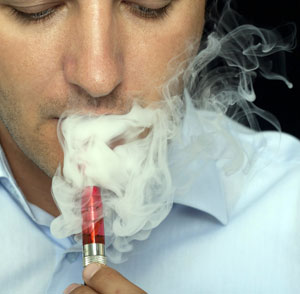China Tobacco Shaanxi Industrial Corporation (CTSIC) is partnering in Zimbabwe with local firm Pacific Cigarette Company (PCC) to manufacture cigarettes, according to a story in The Standard.
The partnership aims to produce a new line of cigarettes, called Acacia Series, that will use Zimbabwean tobacco and Chinese flavors initially to target mainly the large Chinese community resident in Zimbabwe but later the more-than one million Chinese people living throughout Africa.
CTSIC executive Bai Gang said the introduction of the Acacia range of cigarettes was an attempt to widen the company’s base.
Gang said his company was responding to a proposal by China National Tobacco Corporation for Chinese tobacco companies to co-operate with overseas tobacco businesses.
Meanwhile, the acting Chinese ambassador to Zimbabwe Zhao Baogang told journalists that local production of cigarettes would ease the burden on the Chinese community, which had been spending a lot of money to import tobacco products.
Local production would mean more value addition that would create jobs for Zimbabwe’s people, he added.
According to PCC Global CEO Yves le Boulenge, the partnership, the first to be signed between an African cigarette manufacturer and a state-owned Chinese tobacco company, would have a positive ripple effect on local tobacco production.
“Many people know that there is tobacco produced in Zimbabwe, but not many know that it is actually the best in the world, so this partnership will also help in elevating the image because we will be exporting,” he said.
Category: People

Adding value in Zimbabwe

Thais favor harm reduction
Thai people would like to see the Government and the private sector working together on making available smoke-free alternatives to cigarettes, according to a story in The Nation citing the results of a new study.
The study, which was commissioned by Philip Morris (Thailand) Limited (PMTL) and conducted by Ipsos, found that 64 percent of the 1,200 smokers and non-smokers who participated nationwide said they would like their friends and families to have the opportunity to use potentially less harmful alternatives to cigarettes.
Although awareness within Thai society of less harmful products is limited to 15-20 percent of the population, the study found that 48 percent of people said innovative tobacco products should play a role in achieving a smoke-free Thailand.
Pongsathorn Ansusinha, the director of corporate affairs at PMTL, was quoted as saying there was no question that tobacco products were harmful to a smoker’s health, and that the best approach was to stop or never start smoking.
‘Nevertheless, many people will continue to smoke, and we believe that they have a right to accurate information about, and access to, smoke-free products that are a better choice than cigarette smoking,’ he said in a statement.
According to the survey, he added, 58 percent of the respondents or 69 percent of Thai smokers agreed that the government and the private sector should work together on smoke-free alternatives; so PMTL was fully committed to designing a smoke-free future in Thailand in an open and transparent way.
HNB grabs big market share
More than 230 million packs of heat-not-burn (HNB) sticks were sold in South Korea between January and September, according to a story by Kim Hyun-bin at koreatimes.co.kr citing figures published by the Ministry of Economics and Finance.
This means that HNB sticks have captured more than nine percent of total cigarette sales since Philip Morris launched its IQOS device in May 2017.
The Government is said to be concerned that HNB devices are popular among teenagers and that this popularity is spreading.
According to the Korea Centers for Disease Control and Prevention’s Young Adults’ Health Condition Report, the ‘smoking’ rate among middle to high school students rose to 6.7 percent from 6.4 percent last year.
About 9.4 percent of male students smoked, down from 9.5 percent in 2017, while the smoking rate among female students rose from 3.1 percent to 3.7 percent during the same periods.
Of those male and female students who reported smoking, 43 percent were said to have used HNB devices.
The story quoted ‘experts’ as saying that HNB devices were popular among teenagers as they created less odor than did conventional cigarettes. Most students smoked discreetly because they feared being caught by teachers and parents.
The risks associated with using HNB devices were called into question after the Ministry of Food and Drug Safety released a report stating HNB devices delivered five cancer-causing substances and tar levels in excess of those delivered by combustible cigarettes.
The Ministry announced the results after testing IQOS, British American Tobacco’s glo device and KT&G’s Lil.
Philip Morris is suing the Ministry for declining to provide information on its research methods.
Licit sales in free-fall
An attempt to cut smoking in Iran by raising cigarette taxes seems instead to have encouraged a significant number of smokers to buy illicit products, according to an AzerNews story.
AzerNews reported that the number of cigarettes imported into Iran during the first half of the current fiscal year (March 21-September 22) had dropped to zero, from 1.5 billion during same period of the previous year.
At the same time, the head of the Tobacco Products Manufacturers Exporters and Importers Association Mohammad Reza Tajdar said the Association’s members had experienced a 16 percent cut in production and sale of tobacco products.
By the end of this year, the cut would have reached 30 percent, he said.
Iran’s domestic cigarette production during the first half of the current year was 19.6 billion cigarettes, while production during the same period of last year had been 23.4 billion.
The policy of raising cigarette prices to cut consumption had pushed the country’s cigarette market toward low quality smuggled products.
If this continued, the producing factories would face serious problems in paying salaries.
About 15,000 people are employed in the country’s tobacco industry.
Tobacco firms in the clear
A Dutch appeals court yesterday refused to order public prosecutors to open a criminal investigation into the activities of tobacco companies, according to an Associated Press story.
In a written ruling that upheld an earlier decision by prosecutors not to open an investigation, The Hague Appeals Court said that because cigarettes adhered to European Union regulations, there was no criminal behaviour by tobacco companies.
‘The fact that cigarettes can have an addictive character and can create health risks changes nothing,’ the court said.
Dutch lawyer Benedicte Ficq in 2016 sought a criminal prosecution on behalf of ex-smokers and a youth smoking prevention organization. Hospitals, doctors and other groups later joined the action.
Ficq called for the prosecution of Philip Morris, British American Tobacco, Japan Tobacco International and Imperial Tobacco Benelux.
Ficq’s complaint alleged that the tobacco companies were liable because of ‘the large-scale, decades-long and ongoing production and sale of addictive tobacco products in the Netherlands’. It alleged also that tobacco companies deliberately declared cigarette delivery levels of tar, nicotine and carbon monoxide that were lower than the actual delivery levels.
Jan Hein Straeter, director of the Dutch cigarette makers’ association, the VSK, welcomed the court’s ruling.
“The appeal court’s decision is no surprise for the VSK, given that the public prosecutor’s office already rejected the complaint in February in a strongly worded decision and concluded that tobacco companies adhere to the law,” Straeter said.
Meanwhile, a Dutch News story reported the court as saying that the complainants in the case were ‘at the wrong address’. Instead, they should be pressuring the government to change the laws.
Commission out of touch
The public health community needs to adopt a consistent science-based view of new generation tobacco products in order to inform regulators around the world and thereby shape a stable framework, according to a EURACTIV.com interview with Dr. James Murphy, the head of Reduced Risk Substantiation at British American Tobacco.
Speaking to EURACTIV’s Sarantis Michalopoulos on the side-lines of the E-Cigarette Summit organized by the Royal Society in London, the world’s oldest independent scientific academy, Murphy said these products had the potential to become a global business.
“We think that by 2030, new generation products will be 30 percent of our business and by 2050 they could reach 50 percent,” he said.
Murphy said there was a huge body of scientific evidence, from academic, regulatory and public health science suggesting that the use of electronic cigarettes was far less harmful than was traditional smoking.
But Michalopoulos pointed out that the World Health Organization and the European Commission were still sceptical when it came to electronic cigarettes.
Martin Seychell, deputy director-general for health and food safety at the European Commission, was said to have told EURACTIV recently, “We should promote the concept that people should not be addicted in the first place”. “In a few words, prevention of addiction,” Seychell said.
Smoking issue in the open
Campaigners have criticised a proposal to ban smoking in al fresco dining areas in St Helier, Jersey, a self-governing dependency of the UK.
In a submission to the Roads Committee consultation that closed on Monday, the smokers’ group Forest said that those who wanted to ban smoking in al fresco dining areas ignored the fact that smoking was already banned inside every café, pub and restaurant.
‘At least non-smokers have a choice,’ it said. ‘In contrast, having been prohibited from lighting up inside, adults who wish to smoke do not have the option to do so inside where it’s warm and comfortable.
‘Instead, if they wish to smoke while eating or drinking, they are forced to go outside, regardless of the weather.’
In its 10-page submission, Forest said that pubs, restaurants and cafés were private businesses. ‘Whether they choose to allow smoking in al fresco dining areas, where there is no risk to anyone else’s health, should be up to them,’ it said.
‘Tolerance, common sense and good manners (on both sides) must be allowed to prevail without more rules and regulations designed to control people’s behaviour beyond what is reasonable and fair.’
The unintended consequences of a ban, said Forest, could include some bars and restaurants going out of business as smokers stayed away.
Questioning the need for further anti-smoking regulations, the group described the proposal to ban smoking in outdoor dining areas as a ‘solution in search of a problem’.
Simon Clark, the director of Forest, said banning smoking in al fresco dining areas was unfair and unreasonable. “It will do nothing to improve public health but could have serious unintended consequences for local businesses,” he said.
“We urge the Roads Committee to reject the proposal and give owners of outdoor dining areas the freedom to implement policies that best suit their business, not the agenda of a small group of anti-smoking zealots.”
The matter will be discussed at a Roads Committee meeting scheduled for December 12.
What's in a name?
Renewed calls are being made for the term ‘electronic cigarette’ to be replaced by ‘vaporiser; or another word or phrase that emphasises ‘vaping’ rather than ‘cigarette’.
According to a story by Diane Caruana at vapingpost.com, a piece published by New Nicotine Alliance Australia (NNA AU) describes how, during a meeting with tobacco harm reduction advocates, one of the topics raised was the use of the word e-cigarette, the term most commonly used to describe a device that has helped millions successfully quit combustible cigarettes.
Studies have indicated that these products are significantly less risky to use than are combustible cigarettes, and yet a large portion of the public remains confused and misinformed about their relative safety.
Some harm reduction experts believe that the ‘cigarette’ name adds fuel to this confusion.
“So, I ask all to drop the word e-cigarette, and start using vape or vaporiser, as it really seems to be the most logical alternative,” the NNA’s Charles Yates was quoted as saying
Meanwhile, the Australian Tobacco Harm Reduction Association (ATHRA) in October posted a blog on the same idea. ‘It is time to consider replacing the terms “e-cigarette” and “electronic cigarette” with something more appropriate,’ the ATHRA was quoted as saying. ‘These labels link a low-risk life-saving technology to a toxic and deadly product and are muddying the already murky waters of the tobacco harm reduction debate.’
It is interesting to note in this respect that an all-party parliamentary group in the UK, this year changed its name from the All-Party Parliamentary Group for E-Cigarettes to the All-Party Parliamentary Group for Vaping.
This debate, along with that questioning whether the nicotine industry should be associated with the tobacco industry, has been going on since electronic cigarettes first appeared on the scene.
That it has not been resolved is an indication that not everyone agrees that the ‘cigarette’ association is entirely negative. Some people suggest, for instance, that the word ‘cigarette’ within the term ‘electronic cigarette’ helps smokers realize that electronic cigarettes are aimed at them and are the sort of product that they might switch to easily.
Second-hand survey
Oman’s new National Health Survey on Non-Communicable Diseases has found that 27.9 percent of the country’s population is exposed to second-hand tobacco smoke, according to a story in The Times of Oman.
The story indicated that this exposure was divided between the home, where 16.7 percent of people were exposed to second-hand smoke, and the workplace, where 11.2 percent of people were exposed. These figures look slightly odd in that they seem to rule out that anybody is exposed to tobacco smoke both at home and work.
The exposure rate was said to be slightly lower for non-Omanis within the population, 27.0 percent (16.3 percent at home and 10.7 percent at work) than for Omanis, 28.3 percent (16.8 percent at home and 11.5 percent at work).
The survey indicated also that 25.1 percent of women suffered exposure to second-hand smoke (15.2 percent at home and 8.9 percent at work), while the figure for men was 29.9 percent (18.1 percent at home and 11.8 percent at work).
The survey was carried out among 9,045 Omani and non-Omani families distributed across all governorates of the Sultanate in co-operation with the competent departments of the Ministry of Health and the World Health Organization.
“In Oman, non-communicable diseases are responsible for about 70 per cent of the total deaths in the Sultanate, and in response to the growing burden of NCDs, the government of the Sultanate has adopted a multi-sectoral national action plan to prevent and combat NCDs,” Dr. Ahmed Mohammed Al Saidi, Minister of Health, was quoted as saying.
The survey indicated, too, that 15.8 percent of men used tobacco products (6.3 percent of Omanis and 14.2 percent of non-Omanis), while 0.5 percent of women said they used tobacco products.
Growers "ripped off"
The Malawi Parliament on Monday passed the Tobacco Industry Bill, which, among other things, bans buyers from growing tobacco or engaging in the transport and grading of tobacco, according to a story at Malawi24.com.
The law is aimed also at strengthening tobacco associations by increasing membership from 3,000 to 5,000.
Speaking after the bill was passed, the Minister of Agriculture Joseph Mwanamvekha said the new law meant farmers would no longer be ripped off by buyers. It would introduce sanity to the tobacco industry.
“In the past, the farmer was ripped off,” he said. “The farmer signed the contract without knowing the prices he would be offered.”
The minister claimed also that the law would help reduce poverty because farmers would earn more.
However, last week, the Member of Parliament for Karonga North, Frank Mwenefumbo, opposed the bill saying it would benefit only companies.
Mwenefumbo, who is a member of the Alliance for Democracy (AFORD) party, said people in his constituency were against the bill because farmers were aware that it would favor the tobacco companies rather than the farmers.
“Let us put our farmers first and the rest should come second; farmers are the ones who put much effort and money in tobacco business but what do they gain at the end of the day: peanuts, which is not fair to our farmers,” he said.
“These companies are making a lot of profits from our farmers’ sweat; farmers should therefore have all the powers and the companies should surrender their licenses to our farmers; otherwise, this bill is no of use.”










